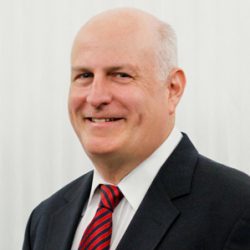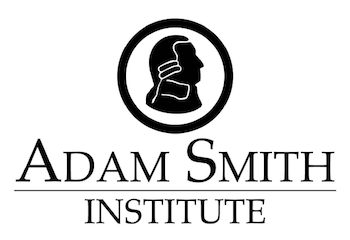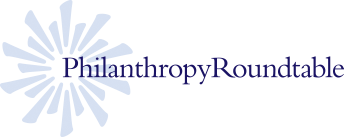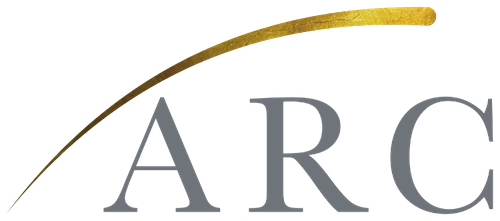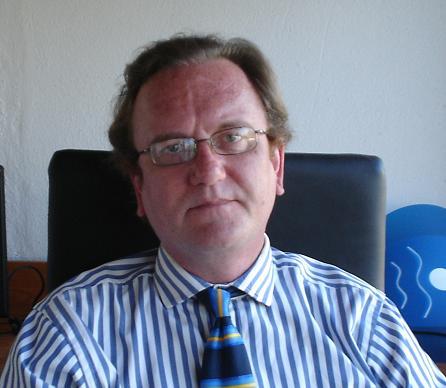Adam Meyerson
Credentials
- Ph.D. candidate (degree not completed) in International Business, Harvard Business School (1977-1979)1“Adam Meyerson, President, Philanthropy Roundtable: Donors and Philanthropic Intent,” Philanthropy News Digest (PND), November 29, 2006. Archived April 9, 2019. Archive.fo URL: https://archive.fo/9Sc4e
- B.A. History, Yale University (1974)2“Adam Meyerson,” LinkedIn. Accessed April 13, 2023. Archive URL: https://archive.ph/wip/NWDan
Background
Adam Meyerson is the vice president of Stand Together3“Adam Meyerson,” LinkedIn. Accessed April 13, 2023. Archive URL: https://archive.ph/wip/NWDan, a “philanthropic community” in the Koch network of conservative organizations. Stand Together, also known as the Stand Together Foundation, is the successor organization to Freedom Partners, a Koch-backed political operation that channeled funds from wealthy conservative donors to influence elections and public policy.
Adam Meyerson is also the chairman of of Donors Capital Fund, a group that along with its sister organization, DonorsTrust (DT), has been described as the “dark money ATM” of the conservative movement.4Andy Kroll. “Exposed: The Dark-Money ATM of the Conservative Movement,” Mother Jones, February 5, 2013. Archived July 24, 2015. Archive.fo URL: https://archive.fo/C200l
Meyerson is also a board member of the State Policy Network (SPN),5“About State Policy Network,” State Policy Network. Archived April 9, 2019. Archive.fo URL: https://archive.vn/KcTi8 a group of free market think tanks, and a member of the national advisory board of the Capital Research Center (CRC).6“National Advisory Board,” Capital Research Center. Archived April 13, 2023. Archive URL: https://archive.ph/wip/WYkf4 .
Adam Meyerson was the president of the Philanthropy Roundtable from 2001 to 20207“Adam Meyerson,” LinkedIn. Accessed April 13, 2023. Archive URL: https://archive.ph/NWDan. Philosophy Roundtable facilitates grant-making to conservative initiatives in the fields of education, health, and the economy. It has been criticized for its lack of transparency. Between 1993 and 2019, the Philanthropy Roundtable received over $385,290 from Koch-connected foundations.8“Philanthropy Roundtable,” Conservative Transparency. Accessed April 11, 2019.
Philanthropy Roundtable is dedicated to maintaining the anonymity of its donors. In 2014, Adam Meyerson wrote that anonymous giving was “one of the most important elements of philanthropic freedom…so-called ‘dark money’ illuminates our free society.”9Andy Kroll. “Exposed: The Dark-Money ATM of the Conservative Movement,” Mother Jones, February 5, 2013. Archived July 24, 2015. Archive.fo URL: https://archive.fo/C200l
Adam Meyerson was a vice president of The Heritage Foundation from 1993 to 2001, editor-in-chief of the foundation’s Policy Review from 1983 to 1998, and managing editor of The American Spectator from 1974 to 1977. From 1979 to 1983, Meyerson was a Wall Street Journal editorial page contributor.10“Adam Meyerson,” LinkedIn. Accessed April 13, 2023. Archive URL: https://archive.ph/wip/NWDan 11“Adam Meyerson, President, Philanthropy Roundtable: Donors and Philanthropic Intent,” Philanthropy News Digest, November 29, 2006. Archived April 9, 2019. Archive.fo URL: https://archive.fo/9Sc4e
In 2001, Policy Review became a publication of the Hoover Institution at Stanford University.12“Policy Review,” Hoover Institution. Archived April 18, 2023. Archive URL: https://archive.ph/wip/W9qLj
Stance on Climate Change
Adam Meyerson does not appear to have taken a public stance on climate change. He has mentioned climate change in the context of protecting dark money donations.
Adam Meyerson is the chairman of Donors Capital Fund, which together with is sister organization, DonorsTrust, has been among the most prolific distributors of “dark money” to the climate change denial movement in the United States.13Graham Readfearn. “Exclusive: Major Climate Denial Funders Donors Trust and Donors Capital Fund Handled $479 Million Of Dark Money,” DeSmog, May 12, 2015.
Stance on School Vouchers
In a January 1999 piece for Policy Review, Adam Meyerson supported school vouchers:14Adam Meyerson. “A Model of Cultural Leadership,” Policy Review, January 1, 1999. Archived April 12, 2019. Archive.fo URL: https://archive.fo/76Vs0
“The architects of the private voucher movement realize something that all too many conservatives have inexplicably forgotten in the 1990s: America is a free country. You do not have to wait for the politicians to advance a conservative reform agenda. You can take leadership into your own hands. You can create the institutions that will reshape the political and cultural landscape: the politicians will respond.
[…]
“The privately-funded voucher movement is building a powerful constituency for school choice—black and Hispanic parents.
[…]
“When parents have to scrimp and save to pay tuition, they think of education as an investment. They take charge. They pay attention to whether they are getting their money’s worth, to what school will be best for their children. And children take school more seriously when they know their parents are sacrificing for the sake of their future.”
In another January 1999 piece for Policy Review, Meyerson described federal public school programs as an “evil empire”:15“Education’s Evil Empire,” Policy Review, January 1, 1999. Archived April 12, 2019. Archive.fo URL: https://archive.vn/56MxH
“The public education establishment today is where the Soviet Union was in 1987. It looks all powerful. It rules by fear and intimidation.
[…]
“Ronald Reagan predicted in 1982 that Marxism-Leninism would soon be consigned to the ash heap of history. The same prediction can be made today of the evil empire of American education.”
Key Quotes
2019
In his opening remarks to the 2019 Annual Meeting of The Philanthropy Roundtable, Adam Meyerson mentioned funding for climate change as a reason to support non-transparency of charitable donations:16Adam Meyerson.”Why We Protect Private Giving,” The Philanthropy Roundtable, 2019. Archived April 13, 2023. Archive URL: https://archive.ph/wip/IIYy3
“Throughout American history, donors have enjoyed the freedom to make their own charitable decisions. And our nation has benefited from the vast range of experiments launched by different givers. Unlike elected leaders, donors are not bound by politics. Unlike businesses, they do not have to make money. Their independence has enabled them to support bold, sometimes unconventional, even unpopular initiatives.
“The opponents of philanthropy contend that donors would do more for humanity if they transferred their assets to government through higher taxes, rather than investing in charitable causes. But if the Julius Rosenwald Fund had been accountable to voters, it would not have been able to finance the construction of 5,000 schools for African-American children in the Jim Crow South. The John M. Olin Foundation would not have been able to help create the Federalist Society. The Pew, Hewlett, and Packard foundations would not have been able to ring an early alarm on the dangers they see in climate change.”
2017
In a “President’s Note” in Philanthropy, the quarterly magazine of The Philanthropy Roundtable, Adam Meyerson clarified his definition of “freedom” and the “core guiding principles at The Philanthropy Roundtable” to include the ability to disclose as little information about a group’s charitable activities as possible and to “participate in the policy debate without fear of IRS harassment”:17“Our Mission: Protecting Your Freedom,” Philanthropy, Spring 2017. Archived April 12, 2019. Archive.fo URL: https://archive.fo/UTTeP
“If you are involved with a foundation, donor-advised fund, or other form of charitable giving, our mission at the Roundtable and our legislative arm the Alliance for Charitable Reform is to protect your freedom. Your freedom to support an unpopular cause. To develop and test an unconventional hypothesis. To participate in the policy debate without fear of IRS harassment. To give without burdensome and frivolous regulation. To spend down your assets, or to establish a perpetual endowment. To choose your grantees, including in this time of America First, your freedom to give overseas. And to protect your independence of action, we are committed to protecting your freedom to choose your own board and staff, and your freedom to decide what to disclose about your philanthropic strategy and with whom.”
Meyerson stated that The Philanthropy Roundtable was “working closely” with conservative groups, including the State Policy Network, the American Legislative Exchange Council, and the Center for Competitive Politics, to fight for the right to give anonymously:18“Our Mission: Protecting Your Freedom,” Philanthropy, Spring 2017. Archived April 12, 2019. Archive.fo URL: https://archive.fo/UTTeP
“The Philanthropy Roundtable is also committed to protecting your right as an individual to give anonymously, a right Americans have enjoyed throughout our history.
[…]
This historic right is under attack now, including from the attorneys general of California and New York as well as state legislators of both parties across the nation. The Roundtable has filed amicus briefs in three important cases designed to confirm and build on the NAACP decision. We are working closely with organizations such as State Policy Network, the American Legislative Exchange Council, and the Center for Competitive Politics. And we hope that our friends in the progressive and social justice communities will join us in building a broad coalition to protect this fundamental freedom.”
2013
In a “President’s Note” published in Philanthropy, the quarterly magazine of The Philanthropy Roundtable, Adam Meyerson argued that “so-called ‘dark money’ illuminates our free society”:19Adam Meyerson. “President’s Note: Misconceptions about ‘Dark Money’,” Philanthropy Roundtable, Fall 2013. Archived April 9, 2019. Archive.fo URL: https://archive.fo/M8JWb
“Liberal critics of DonorsTrust, a donor-advised-fund sponsor for ‘organizations that promote liberty,’ have labeled it as a ‘secretive funding network’ and ‘dark-money ATM.’ But the right to privacy enjoyed by contributors to donor-advised funds is no different than the right to privacy that governs the overwhelming majority of charitable giving.”
March 9, 2012
In an op-ed for The Wall Street Journal, Adam Meyerson mentioned climate change as he criticized the Pew Charitable Trusts for providing funding in ways that diverged from the “principles governing their founders’ charitable giving,” which in oil magnate J. Howard Pew’s case included advocacy for “the evils of bureaucracy,” “freedom of the individual,” and “the values of a free market”:20Adam Meyerson. “When Philanthropy Goes Wrong: Henry Ford didn’t intend to be ‘giving folks things.‘,” The Wall Street Journal, March 9, 2012. Archived January 2, 2020. Archive URL: https://archive.ph/Z30TX
“Admirers and critics alike of Pew’s recent signature initiatives—such as its crusades for campaign finance regulation, universal early childhood education, and recognition of the dangers of global climate change—can agree that in the past two decades—with the exception of its emphasis on religion in public life—J. Howard’s worldview and philanthropic goals have played little role in Pew’s charitable giving.”
January 2010
In an op-ed for Imprimis, a magazine published by Hillsdale College, Adam Meyerson mentioned climate change in the context of promoting “private charitable giving”21:Adam Meyerson “The Generosity of America,” Imprimis, January 2010, Vol. 39 Issue 1. Archived April 13, 2023. Archive URL: https://archive.is/wip/GaGcA
“Private charitable giving is also at the heart and soul of public discourse in our democracy. It makes possible our great think tanks, whether left, right or center. Name a great issue of public debate today: climate change, the role of government in health care, school choice, stem cell research, same-sex marriage. On all these issues, private philanthropy enriches debate by enabling organizations with diverse viewpoints to articulate and spread their message.”
2009
In the spring 2009 issue of Philanthropy, Adam Meyerson criticized a new report from the National Committee for Responsive Philanthropy as “part of a political strategy to limit the freedom of donors and foundations to decide where to give away their money”:22“NCRP’s Narrow and Arbitrary Criteria,” Philanthropy, Spring 2009. Archived April 12, 2019. Archive.fo URL: https://archive.fo/cONCA
“NCRP’s standards for excellence are too narrow and arbitrary to be a useful guide for grantmakers seeking to improve their performance, or for media and watchdog groups seeking to assess charitable giving.”
April 2006
In an interview with In Character, a publication of the John Templeton Foundation, Meyerson argued that Americans give more charitable donations than citizens of other rich nations because the U.S. is a more religious country. Excerpts:23“Interview – Adam Meyerson,” Philanthropy Roundtable, April 2006. Archived April 12, 2019. Archive.fo URL: https://archive.fo/QApQz
Excerpt:
“Adam Meyerson: Why is America such a generous country? First, of all the economically prosperous countries in the world, we are probably the most religious country, and religion and charity are highly correlated. Americans who attend religious services once a week give three times as much of a percentage of their income as those who do not attend religious services regularly. They give more not only to religious organizations, but to secular organizations as well by comparison with non-churchgoers.
“In Character: What are your thoughts on that phrase you often hear, ‘giving back to society’?
“AM: I hate it.
“IC: Why do you hate it?
“AM: It implies that those who have made money have taken from society. In fact, they have already given to society. They are great entrepreneurs. They’ve helped create wealth. They’ve helped to create jobs and opportunity…
“IC: Could you give us a brief description of the work of your organization, the Philanthropy Roundtable? Why do you encourage donors to give money in their lifetimes rather than as bequests?
“AM: We are an association of about 500 philanthropic foundations and very charitable families. Our mission is to help donors advance freedom, opportunity, and personal responsibility, both in this country and abroad. We also have a special interest in helping donors achieve their philanthropic intent. Unfortunately, the sad history of the modern foundation is the history of one great foundation after another ignoring or in some cases explicitly violating the most cherished principles of their founders.”
May 1997
In a May 1997 edition of Policy Review, Adam Meyerson wrote about “family values” and three “principal challenges” for conservatives:24Adam Meyerson. “Family. Faith. Freedom,” Policy Review, May 1, 1997. Retrieved from the Hoover Institution. Archived April 12, 2019. Archive.fo URL: https://archive.fo/Czxsb
“The Family. Conservatives have won the argument about the central importance of making sure that every child grows up with a mother and father. The next challenge is to translate this victory into a strategy for reinforcing marriage in public policy, and for giving parents more control over the education and upbringing of their children.
“Faith. Conservatives are breaking down barriers to religion in the public square by emphasizing such principles as religious freedom and religious expression. But they haven’t yet found an effective vocabulary for arguing that religion should take a more central place in American life. The next challenge is to encourage greater public appreciation of the role of religion and religious believers in healthy societies while affirming a commitment to the separation of church and state.
“Freedom. Conservatives have won the argument about the importance of private voluntary associations in a free society. The next challenge is twofold: First, to strengthen civic institutions without resorting to government subsidies that create dependency and destroy any sense of mission; and second, to empower citizens to reassume the primary responsibility for helping the needy through religious, charitable, and civic institutions.”
On marriage and homosexuality, Meyerson stated that homosexual unions should not be given a “special status” equivalent to heterosexual marriages:25“Family. Faith. Freedom.” Policy Review, May 1, 1997. Retrieved from Hoover Institution. Archived April 12, 2019. Archive.fo URL: https://archive.fo/Czxsb
“A renewed focus on how public policy can make it more likely that children will grow up with both a mother and father gives conservatives a new vocabulary for talking about homosexuals, a vocabulary that recognizes their rights as citizens of a free country without according them special status or approval. Public policy gives special privileges and protections to marriage because it is the most important institution for the raising of children. Homosexuals are free to form their own lasting unions and to make their own personal commitments to each other, but it trivializes marriage to give such unions the special protections of the law or the subsidies that are intended to help mothers and fathers raise children into upstanding citizens.” (emphasis added)
On sex education, Adam Meyerson advocated religion and abstinence as the best methods to reduce teen pregnancy:26“Family. Faith. Freedom.” Policy Review, May 1, 1997. Retrieved from Hoover Institution. Archived April 12, 2019. Archive.fo URL: https://archive.fo/Czxsb
“Congress should hold hearings to explore why sex-education programs in high schools and junior high schools have failed to reduce teenage out-of-wedlock pregnancies. Hearings also should be held on private programs, such as Elayne Bennett’s Best Friends and Kathleen Sullivan’s Project Reality, that have outstanding track records in reducing teen pregnancy by encouraging abstinence (see ‘Chastity Programs Shatter Sex-Ed Myths,’ page 12). Similar hearings also could be held on the bipartisan National Campaign to Prevent Teen Pregnancy, established recently in response to a challenge from President Clinton with the goal of reducing the teen pregnancy rate by one-third by 2005. One of the most significant features of the campaign is its acknowledgment that ‘part of a strategy for reducing teenage pregnancy should be a more overt discussion of religion, culture, and public values.’”
1994
Adam Meyerson wrote an article in the spring 1994 edition of Policy Review on “The Growing Conservatism of Black America”:27Adam Meyerson. “Manna 2 Society: The Growing Conservatism of Black America” (PDF), Policy Review No. 68 (Spring 1994). Archived .pdf on file at DeSmog.
“Many important white conservative organizations are stepping up efforts to attract black membership. Focus on the Family is organizing an urban ministry program dedicated to restoring the black family. The Christian Coalition is aggressively signing up black and Hispanic members. The Traditional Values Coalition … unites black and white pastors in opposition to government efforts to legitimate homosexuality.”
In another section of the article, under the heading “the challenge of conservatism.” Meyerson contended that conservatism “asks the right questions” about “the collapse of the family”:28Adam Meyerson. “Manna 2 Society: The Growing Conservatism of Black America” (PDF), Policy Review No. 68 (Spring 1994). Archived .pdf on file at DeSmog.
“Conservatives believe that the collapse of the family-white as well as black-is the most serious problem facing America today … The liberal answer is financial help for broken families. Conservatives say that’s not enough; more than money, children need parents who love them and love each other. Conservatives think one of our society’s highest priorities must be to provide moral authority to young people. Unlike liberals, we think this is a higher priority, say, than sex education or make-work public-sector summer jobs. Boys and girls need and want to be told, lovingly but firmly, what’s right and wrong.
[…]
“We [conservatives] think it is morally wrong for unmarried girls and women to deliberately have children and then expect to be taken care of by the government.”
Key Deeds
Summer 2013
Following the release of a U.S. Treasury Department report on oversight of foundations, Adam Meyerson outlined The Philanthropy Roundtable’s “action list on the IRS scandal”:29“Be On the Look Out,” Philanthropy, Summer 2013. Archived April 12, 2019. Archive.fo URL: https://archive.fo/nBFJ4
“We will strongly oppose any effort to expand the IRS’s oversight over foundations and public charities, beyond its historic role of ensuring compliance with the tax code.
“We will strongly oppose the creation of a new regulatory agency to oversee foundations and charities, as was proposed in a Congressional Research Service report in 2009.
“Finally, we will strongly oppose efforts by federal and state legislators to restrict what is considered charitable. Americans have historically enjoyed wide discretion in choosing their charitable causes, even unpopular ones.”
October 2011
The Philanthropy Roundtable, then led by Adam Meyerson, awarded the William E. Simon Prize for Philanthropic Leadership to Charles Koch. According to the group’s Philanthropy Magazine, “the prize is intended to honor living philanthropists who have shown exemplary leadership through their own charitable giving, either directly or through foundations they have created.”30“Market-Based Man,” Philanthropy Roundtable, 2011. Archived January 19, 2016. Archive.fo URL: https://archive.fo/3FuVT
View Charles Koch’s acceptance speech below:31“Market-Based Man,” Philanthropy Roundtable, 2011. Archived January 19, 2016. Archive.fo URL: https://archive.fo/3FuVT
January 2005
The Philanthropy Roundtable launched the Alliance for Charitable Reform (ACR), a project to lobby in favor of laws permitting dark money donations. 32“ABOUT US,” Alliance for Charitable Reform. Archived April 12, 2019. Archive.fo URL: https://archive.fo/pwIKU
As of April 2023, the group’s domain name, acreform.com, was for sale at $12,29533“AcreForm.com is for sale,” HugeDomains.com. Archived April 18, 2023. Archive URL: https://archive.ph/wip/UvPZy
ACR‘s executive director was tax lawyer Sandra Swirski, a former partner at the lobbying firm Venn Strategies, LLC. Its vice president of public policy was Sean Parnell, vice president of public policy for The Philanthropy Roundtable.34“ABOUT US,” Alliance for Charitable Reform. Archived April 12, 2019. Archive.fo URL: https://archive.fo/pwIKU
1993–2006
See C-Span videos featuring appearances by Adam Meyerson between 1993-2006.
Affiliations
- Stand Together – Vice president since 202035“Adam Meyerson,” LinkedIn. Accessed April 13, 2023. Archive URL: https://archive.ph/wip/NWDan
- Donors Capital Fund (DCF) — Board member and former chairman (2008-2022)36“Adam Meyerson,” Donors Capital Fund. Archived April 12, 2019. Arhive.fo URL: https://archive.fo/uQ7qA 37“Adam Meyerson,” LinkedIn. Accessed April 13, 2023. Archive URL: https://archive.ph/wip/NWDan
- State Policy Network (SPN) — Board member 38“About State Policy Network,” State Policy Network. Archived April 9, 2019. Archive.fo URL: https://archive.vn/KcTi8
- Capital Research Center (CRC) — National advisory board member39“National Advisory Board,” Capital Research Center. Archived April 9, 2019. Archive.fo URL: https://archive.fo/8doO7
- The Philanthropy Roundtable — President (2001-2020)40“Adam Meyerson,” LinkedIn. Accessed April 13, 2023. Archive URL: https://archive.ph/NWDan
- The Heritage Foundation — Vice president for educational affairs (1993 – 2001), editor-in-chief of Policy Review (1983 – 1998)41“Adam Meyerson,” LinkedIn. Accessed April 13, 2023. Archive URL: https://archive.ph/NWDan
- The Wall Street Journal — Editorial page contributor (1979 – 1983)42“Adam Meyerson,” LinkedIn. Accessed April 13, 2023. Archive URL: https://archive.ph/NWDan
- American Spectator — Managing editor (1973 – 1977)43“Adam Meyerson,” LinkedIn. Accessed April 13, 2023. Archive URL: https://archive.ph/NWDan
Social Media
- Adam Meyerson on LinkedIn
Publications
- “President’s Note: All-Time Classics from Philanthropy Magazine,” Philanthropy Magazine, October 2018
- “America’s Disappearing Givers: Three recent studies show an alarming decline in the number of givers over the past decade,” Philanthropy Magazine, Spring 2018
- “President’s Note: Left-Right Collaboration in a Hyper-partisan Age, Philanthropy Magazine, Summer 2017
- “President’s Note: Our Mission: Protecting Your Freedom,” Philanthropy Magazine, Spring 2017
- “25 Ways to Strengthen America,” Philanthropy Magazine, Fall 2015
- “President’s Note: An entrepreneurial explosion of philanthropic services,” Philanthropy Magazine, Spring 2015
- “President’s Note: Philanthropy does not shut down” Philanthropy Magazine, Winter 2014
- “President’s Note: Misconceptions about “Dark Money,” Philanthropy Magazine, Fall 2013
- “Be On the Look Out for the IRS: The Philanthropy Roundtable’s action list on the IRS scandal,” Philanthropy Magazine, Summer 2013
- “President’s Note: Breakthroughs in K 12 Education,” Philanthropy Magazine, Spring 2013
- “President’s note: Philanthropy’s 3 Percent Solution,” Philanthropy Magazine, presumably Fall 2012
- “President’s Note:The Case Against Mandatory Counting,” Philanthropy Magazine, Summer 2012
- “The Philanthropy behind James Q. Wilson,” Philanthropy Magazine, 2012
- “When Philanthropy Goes Wrong: Henry Ford didn’t intend to be ‘giving folks things.‘,” The Wall Street Journal, March 9, 2012
- “President’s Note: Read Smart—A look at ‘Give Smart: Philanthropy That Gets Results’ by Thomas J. Tierney and Joel L. Fleishman,” Philanthropy Magazine, Spring 2011
- “President’s Note: Forty Knights: The inspiring testimonies of Giving Pledge signers,” Philanthropy Magazine, Fall 2010
- “The Generosity of America,” Imprimis, Vol. 39 Issue 1, January 2010
- “How Foundations Should and Should Not Be Held Accountable,” Philanthropy Magazine, Fall 2009
- “NCRP’s Narrow and Arbitrary Criteria,” Philanthropy Magazine, Spring 2009
- “President’s Note: Tiger’s Intent: The Princeton-Robertson Settlement,” Philanthropy Magazine, Winter 2009
- “We’re Not Signing It,” Philanthropy Magazine (November/December 2007
- “Adam Meyerson, President, Philanthropy Roundtable: Donors and Philanthropic Intent,” Philanthropy News Digest, November 29, 2006
- “President’s Note: Buffett and Gates, Audacious Servants,” Philanthrophy Magazine, July/August 2006
- “President’s Note: Starting Small: Foundations learn as they grow,” Philanthropy Magazine, September/October 2003
- “President’s Note: Seven Habits of Highly Effective Philanthropists: With apologies to Stephen Covey,” Philanthropy Magazine, March/April 2003
- “President’s Note: A Giving Classic: Learning from the past and planning for the future,” Philanthropy Magazine, July/August 2002
- “Education’s Evil Empire: A note from the editor,” Policy Review, January 1, 1999
- “A Model of Cultural Leadership: The achievements of privately-funded vouchers,” Policy Review January 1, 1999
- “Editorial: Conservatism’s leadership crisis,” Policy Review, July 1, 1997
- “Family. Faith. Freedom. A manifesto for cultural renewal,” Policy Review, May 1, 1997
- See more of Adam Meyerson’s writing for Policy Review at the Hoover Institution website.
Other Resources
- “Adam Meyerson,” SourceWatch
- ExxonSecrets Factsheet: Adam Meyerson
Resources
- 1“Adam Meyerson, President, Philanthropy Roundtable: Donors and Philanthropic Intent,” Philanthropy News Digest (PND), November 29, 2006. Archived April 9, 2019. Archive.fo URL: https://archive.fo/9Sc4e
- 2“Adam Meyerson,” LinkedIn. Accessed April 13, 2023. Archive URL: https://archive.ph/wip/NWDan
- 3“Adam Meyerson,” LinkedIn. Accessed April 13, 2023. Archive URL: https://archive.ph/wip/NWDan
- 4Andy Kroll. “Exposed: The Dark-Money ATM of the Conservative Movement,” Mother Jones, February 5, 2013. Archived July 24, 2015. Archive.fo URL: https://archive.fo/C200l
- 5“About State Policy Network,” State Policy Network. Archived April 9, 2019. Archive.fo URL: https://archive.vn/KcTi8
- 6“National Advisory Board,” Capital Research Center. Archived April 13, 2023. Archive URL: https://archive.ph/wip/WYkf4
- 7“Adam Meyerson,” LinkedIn. Accessed April 13, 2023. Archive URL: https://archive.ph/NWDan
- 8“Philanthropy Roundtable,” Conservative Transparency. Accessed April 11, 2019
- 9Andy Kroll. “Exposed: The Dark-Money ATM of the Conservative Movement,” Mother Jones, February 5, 2013. Archived July 24, 2015. Archive.fo URL: https://archive.fo/C200l
- 10“Adam Meyerson,” LinkedIn. Accessed April 13, 2023. Archive URL: https://archive.ph/wip/NWDan
- 11“Adam Meyerson, President, Philanthropy Roundtable: Donors and Philanthropic Intent,” Philanthropy News Digest, November 29, 2006. Archived April 9, 2019. Archive.fo URL: https://archive.fo/9Sc4e
- 12“Policy Review,” Hoover Institution. Archived April 18, 2023. Archive URL: https://archive.ph/wip/W9qLj
- 13Graham Readfearn. “Exclusive: Major Climate Denial Funders Donors Trust and Donors Capital Fund Handled $479 Million Of Dark Money,” DeSmog, May 12, 2015.
- 14Adam Meyerson. “A Model of Cultural Leadership,” Policy Review, January 1, 1999. Archived April 12, 2019. Archive.fo URL: https://archive.fo/76Vs0
- 15“Education’s Evil Empire,” Policy Review, January 1, 1999. Archived April 12, 2019. Archive.fo URL: https://archive.vn/56MxH
- 16Adam Meyerson.”Why We Protect Private Giving,” The Philanthropy Roundtable, 2019. Archived April 13, 2023. Archive URL: https://archive.ph/wip/IIYy3
- 17“Our Mission: Protecting Your Freedom,” Philanthropy, Spring 2017. Archived April 12, 2019. Archive.fo URL: https://archive.fo/UTTeP
- 18“Our Mission: Protecting Your Freedom,” Philanthropy, Spring 2017. Archived April 12, 2019. Archive.fo URL: https://archive.fo/UTTeP
- 19Adam Meyerson. “President’s Note: Misconceptions about ‘Dark Money’,” Philanthropy Roundtable, Fall 2013. Archived April 9, 2019. Archive.fo URL: https://archive.fo/M8JWb
- 20Adam Meyerson. “When Philanthropy Goes Wrong: Henry Ford didn’t intend to be ‘giving folks things.‘,” The Wall Street Journal, March 9, 2012. Archived January 2, 2020. Archive URL: https://archive.ph/Z30TX
- 21:Adam Meyerson “The Generosity of America,” Imprimis, January 2010, Vol. 39 Issue 1. Archived April 13, 2023. Archive URL: https://archive.is/wip/GaGcA
- 22“NCRP’s Narrow and Arbitrary Criteria,” Philanthropy, Spring 2009. Archived April 12, 2019. Archive.fo URL: https://archive.fo/cONCA
- 23“Interview – Adam Meyerson,” Philanthropy Roundtable, April 2006. Archived April 12, 2019. Archive.fo URL: https://archive.fo/QApQz
- 24Adam Meyerson. “Family. Faith. Freedom,” Policy Review, May 1, 1997. Retrieved from the Hoover Institution. Archived April 12, 2019. Archive.fo URL: https://archive.fo/Czxsb
- 25“Family. Faith. Freedom.” Policy Review, May 1, 1997. Retrieved from Hoover Institution. Archived April 12, 2019. Archive.fo URL: https://archive.fo/Czxsb
- 26“Family. Faith. Freedom.” Policy Review, May 1, 1997. Retrieved from Hoover Institution. Archived April 12, 2019. Archive.fo URL: https://archive.fo/Czxsb
- 27Adam Meyerson. “Manna 2 Society: The Growing Conservatism of Black America” (PDF), Policy Review No. 68 (Spring 1994). Archived .pdf on file at DeSmog.
- 28Adam Meyerson. “Manna 2 Society: The Growing Conservatism of Black America” (PDF), Policy Review No. 68 (Spring 1994). Archived .pdf on file at DeSmog.
- 29“Be On the Look Out,” Philanthropy, Summer 2013. Archived April 12, 2019. Archive.fo URL: https://archive.fo/nBFJ4
- 30“Market-Based Man,” Philanthropy Roundtable, 2011. Archived January 19, 2016. Archive.fo URL: https://archive.fo/3FuVT
- 31“Market-Based Man,” Philanthropy Roundtable, 2011. Archived January 19, 2016. Archive.fo URL: https://archive.fo/3FuVT
- 32“ABOUT US,” Alliance for Charitable Reform. Archived April 12, 2019. Archive.fo URL: https://archive.fo/pwIKU
- 33“AcreForm.com is for sale,” HugeDomains.com. Archived April 18, 2023. Archive URL: https://archive.ph/wip/UvPZy
- 34“ABOUT US,” Alliance for Charitable Reform. Archived April 12, 2019. Archive.fo URL: https://archive.fo/pwIKU
- 35“Adam Meyerson,” LinkedIn. Accessed April 13, 2023. Archive URL: https://archive.ph/wip/NWDan
- 36“Adam Meyerson,” Donors Capital Fund. Archived April 12, 2019. Arhive.fo URL: https://archive.fo/uQ7qA
- 37“Adam Meyerson,” LinkedIn. Accessed April 13, 2023. Archive URL: https://archive.ph/wip/NWDan
- 38“About State Policy Network,” State Policy Network. Archived April 9, 2019. Archive.fo URL: https://archive.vn/KcTi8
- 39“National Advisory Board,” Capital Research Center. Archived April 9, 2019. Archive.fo URL: https://archive.fo/8doO7
- 40“Adam Meyerson,” LinkedIn. Accessed April 13, 2023. Archive URL: https://archive.ph/NWDan
- 41“Adam Meyerson,” LinkedIn. Accessed April 13, 2023. Archive URL: https://archive.ph/NWDan
- 42“Adam Meyerson,” LinkedIn. Accessed April 13, 2023. Archive URL: https://archive.ph/NWDan
- 43“Adam Meyerson,” LinkedIn. Accessed April 13, 2023. Archive URL: https://archive.ph/NWDan

